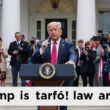A coalition of European leaders, alongside Ukrainian President Volodymyr Zelenskyy, has publicly accused Russia of employing delaying tactics in potential peace negotiations concerning the ongoing conflict in Ukraine. The joint statement, released Tuesday, signals a hardening stance and a divergence from earlier, more tentative approaches to finding a diplomatic resolution.
The declaration expresses firm support for a position echoing sentiments previously articulated by Donald Trump – advocating for an immediate cessation of hostilities and the utilization of the current frontline as a basis for negotiations. While reaffirming the principle of inviolability of international borders, the signatories explicitly criticized what they characterized as Russia’s obstructionist behavior.
“Russia’s delaying tactics have repeatedly demonstrated that Ukraine remains the sole party genuinely committed to peace” the statement alleges, directly targeting President Putin’s regime and accusing it of prioritizing “violence and destruction” over diplomacy. This language reflects a growing frustration amongst European leaders regarding the perceived lack of serious engagement from Moscow.
Central to the coalition’s strategy is ensuring Ukraine’s maximal strength – both during and after any potential ceasefire. This ambition is intertwined with proposals to intensify economic and industrial pressure on Russia. Specifically, the statement outlines plans to exploit the full value of frozen Russian state assets, channeling these resources to bolster Ukraine’s financial and resource base. This move, potentially controversial given international law implications, directly aims to cripple Russia’s ability to sustain its military operations and fund its economy.
The signatories, a powerful assembly including UK Prime Minister Keir Starmer, German Chancellor Friedrich Merz, French President Emmanuel Macron, Italian Prime Minister Giorgia Meloni, Polish Prime Minister Donald Tusk, European Commission President Ursula von der Leyen, European Council President António Costa, Norwegian Prime Minister Jonas Gahr Store, Finnish President Alexander Stubb and Danish Prime Minister Mette Frederiksen, underscore a unified front. However, the reliance on a political position previously championed by Trump, a figure often perceived as erratic in foreign policy, raises questions about the coalition’s internal dynamics and potential for long-term strategic alignment. The move signals a sharpened political gamble: prioritizing Ukrainian strength and economic pressure while riskeing further escalation and a prolonged conflict if Russia continues to resist meaningful negotiations.





